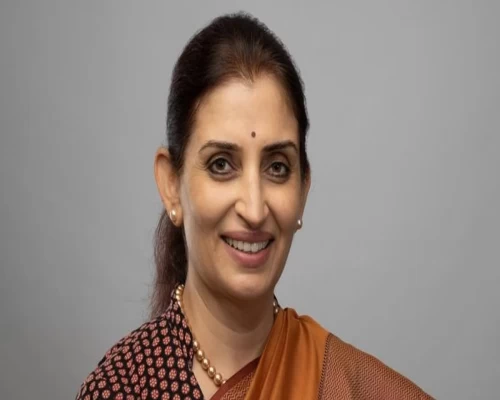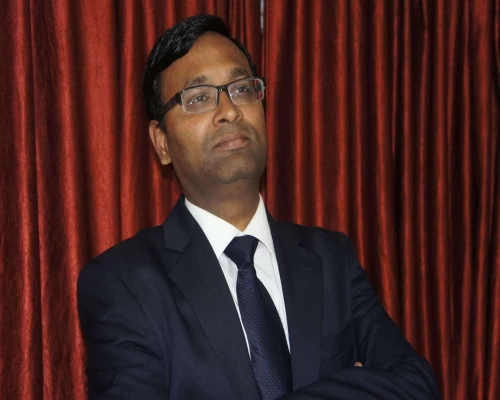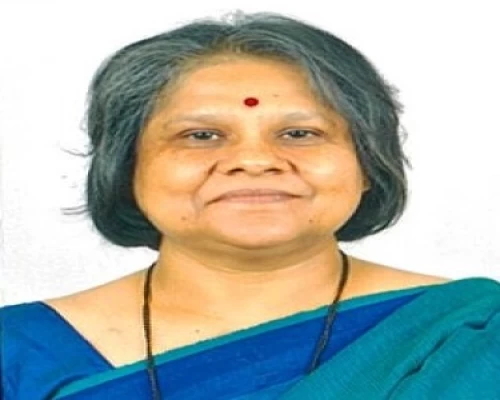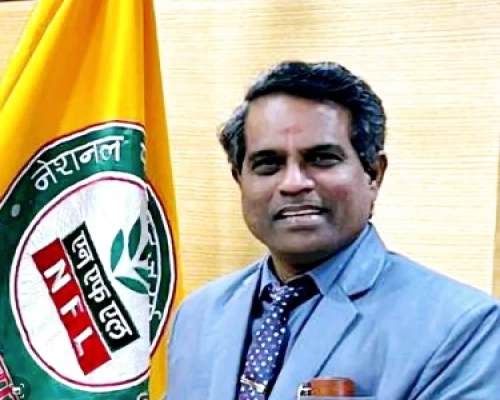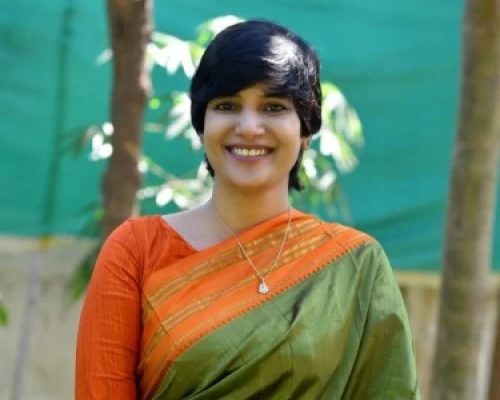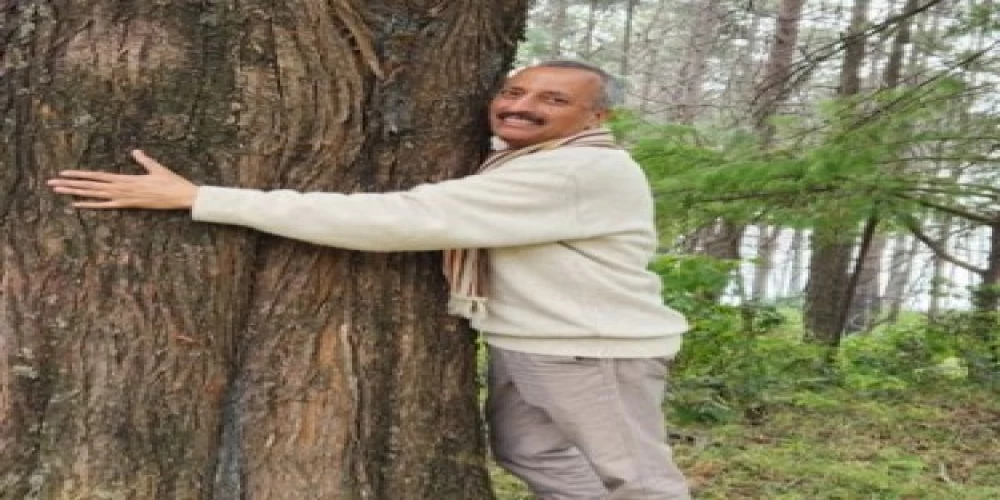
New Delhi: Meet dynamic and visionary Indian Forest Service (IFS) officer MC Pargaien, currently serving as Principal Chief Conservator of Forest (PCCF), Telangana! He lives his professional and personal life in sync with the beauty of nature and leaves nothing unturned to contribute his bit to preserve the grandeur nature in his official and personal capacity.
In an exclusive conversation with Bureaucrats India, Pargaien, who belongs to 1990 batch, said: “It is the need of the hour to work collectively for nature positive future. We cannot think of life and growth without ensuring the resilience of the environment and biodiversity.”
Talking about the virtual event, which was organized on November 28, 2022 by the UNDP in association with the UNEP and the Convention on Biological Diversity, Pargaien said: “Event like Nature for Life Hub featured participants having a genuine concern for the nature and present innovative and dynamic approaches with workable alternatives and practical solutions with ambitious actions needed to reach towards a sustainable and nature-positive future.”
As the noted thinker and philosopher J Krishnamurti once said that “if you lose relationship with nature, you lose relationship with humanity.” The route and approaches of nature, positive alternatives and lifestyle are not only a destination of humanity but also a sound foundation for sustainable governance and a bright future, he said.
He informed that the other selected speakers included Andrew Steer, CEO and President of Bezos Earth Fund; Midori Paxton, Head of Ecosystems and Biodiversity, UNDP, and Fred Onyai, Head National Environmental Management Auth, Uganda, Starry-Sprenkle-Hyppolite, Restoration Science; Stephanie Lang, Executive Director of the Legacy Landscapes Fund; Dr Teh Su Thye, CEO, Global Peace Foundation Malaysia; and Sylvie Wabbes, Agronomist and Resilience Advisor, FAO.
Recently, your lightning talk on ‘Telangana’s Urban Forests and Nature Parks: Better Health and Climate Change Adaptations’ was selected for the UNDP’s Nature for Life HUB-2022. Will you please share the details?
The UNDP’s Nature for Life Hub is an excellent platform where new initiatives and interventions are discussed to bring desired changes for a sustainable future. Since the Urban Parks and Nature Parks being developed in Telangana also act as excellent nature-based solutions for tackling climate change, my lighting talk was found to be suiting best under the segment ‘Nature for Development.’
In your talk, you highlighted pro-environmental initiatives and policy interventions of Telangana government under Harithaharam programme. When the programme was conceptualized
Newly formed Indian state Telangana launched its flagship programme called ‘Telangana Ku Harithaharam (Green Garland for Telangana) in 2015, which is a brainchild of visionary Chief Minister Kalvakuntla Chandrashekar Rao. The major objective of this programme is to bring the area under green cover to 33 per cent through various integrated approaches and interventions.
The Urban Forest and Village Parks provide an excellent nature-based solution for climate change adaptations and biodiversity conservation. How has your experience been so far?
With the support of historic amendments to Panchayat and Municipal Acts having mandatory 10 per cent budgetary allocation as the Green Budget and accountability for survival of plantations, the growth of Urban Parks and Village Nature Parks have been remarkable with active participation of people. Since the beginning, the Forest Department has become one of the active partners of this programme. We are not only helping to increase the green cover inside the reserved forests but also providing all technical support to various stakeholders including local communities to improve the green cover outside the reserved forests.
Where do we stand so far as our best green practices are concerned? Do you think that we are doing enough to protect our environment?
There is no benchmark or yardstick to measure the initiatives taken by various organisations including governments for environmental conservation and sky is the limit for such measures. However, the proactive policy interventions, strong financial and institutional arrangements which are the major features of Telangana’s green stride, certainly places Telangana among top of all Indian states.
Could you please share some of your best initiatives in your career so far, which you think need to be expanded for the preservation of the environment?
As the first project director of Drought Prone Area Programme, Cuddapah, I could involve people in adopting low-cost water harvesting structures and rejuvenation of traditional water harvesting structures under participatory models including Watershed Programmes of the Government of India. The approach of promoting low-cost water harvesting was later also adopted in ‘Water Conservation Mission,’ a flagship mission of Andhra Pradesh.
While working as a Divisional Forest Officer of Kaghaznagar and Paloncha, I could successfully ensure and motivate local communities for their participation in rehabilitation and development of degraded forests under the Joint Forest Management approach. During 2005-2006, I was associated in providing policy framework and also monitoring of India’s Forest Cloud Seeding Project for rain water enhancement.
As the Field Director, Amrabad Tiger Reserve, I was instrumental in launching a unique programme of bringing awareness among school children of the fringe villages of tiger reserve under the banner ‘Tiger Calling’ which was later adopted by the State Forest Department as ‘Van Darshini’ across Telangana. Recently my blog entry ‘Resilience and better life with Urban Forests’ was chosen by the World Forestry Congress as one among the top three blogs. I was also instrumental in getting a place for Hyderabad city among ‘Tree Cities of the World’ listed by the Arbor Day Foundation jointly with the FAO.
Do you think that we have the kind of synergy among all stakeholders that is required to mitigate the challenges emanating from the climate changes? What kind of preparedness do we need to have at the grassroots level to deal with them?
Climate change challenges are aggravating day by day and need inclusive strategies having multi-faceted approaches including social acceptance and political will to overcome them. Collective action involving all active stakeholders with suitable finances and policy interventions is the need of the hour. In developing countries where poverty is linked with environmental degradation, global strategies with proactive action from developed nations can help to achieve our goals. Improved capacities of local people and communities, adequate incentivisation and enabling policies may help considerably to bring required synergy for mitigating climate challenge at all levels.




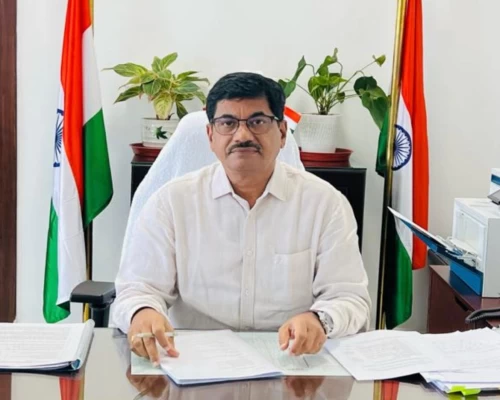
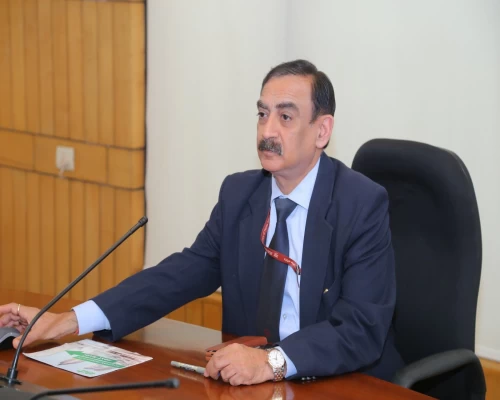
_500_x_400.webp)
